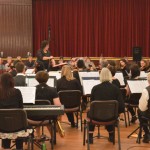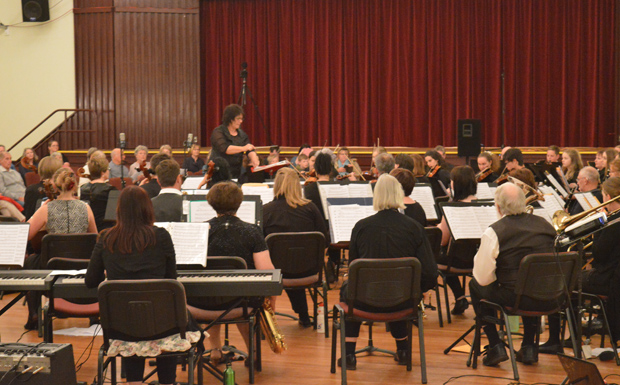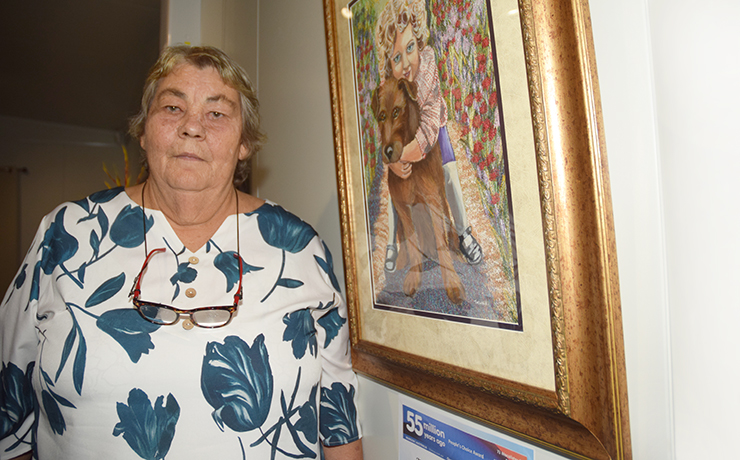 December 9, 2018
December 9, 2018
by Dafyd Martindale
The South Burnett is not a tourism mecca in the same vein as the Gold Coast, the Sunshine Coast or the Whitsundays.
We never will be and – frankly – we don’t need to be, either.
We’re a small region of 32,000 people located just a few hours’ drive from other regions with vast populations, and we offer attractions quite different to the sun, sand and seagulls of the overcrowded coast.
Happily, we only need to attract a tiny percentage of people from those nearby markets to make a significant difference to our local economy.
But for such a small area faced with such an apparently simple task, we seemed to have made a complete mosh of things over the past 20 years.
At various times, we have belonged to different State Government regional tourism organisations (RTOs): Fraser Coast (then known as Fraser Coast South Burnett Regional Tourism), the now-merged Toowoomba and Golden West (briefly known as “Toowoomba Golden West and South Burnett Tourism”) and then Golden West’s successor, Southern Queensland Country Tourism.
We have always been an unloved orphan – never quite fitting in with one region or another, never knowing where we belonged.
Over the years, some operators wanted a pivot towards Brisbane and “Highway 17” promotions (ie. Brisbane Valley); other tourism businesses in the southern end of the South Burnett looked towards Toowoomba (a move that backfired when another wine industry destination – the Granite Belt – was melded into the RTO), while businesses in the northern part looked back with fond memories to Fraser Coast and the marketing that attracted tourists from the Sunshine Coast via Gympie and Kilkivan to Murgon and the two dams.
There have also been conflicting promotional pushes: ie. farmstays, hosted accommodation, sports tourism (racing, fishing, golf etc), the South Burnett/Barambah wine trail; the “Harvest Trail” for backpackers, South Burnett cuisine, experiential/destination marketing … the list goes on
But at times, we have also found the confidence to tell Tourism Queensland (now TEQ) to take a leap and elected to go it alone.
The latest ruckus in the local industry follows the decision a year ago by South Burnett Regional Council to cancel its Southern Queensland Country Tourism membership.
A fledgling local tourism organisation, Visit South Burnett, had hoped Council would direct the former fees it paid to SQCT towards it.
But this was not to be.
Instead, Council took control of the region’s tourism marketing efforts, establishing “Discover South Burnett” under the wing of the Economic Development office.
Recent meetings show operators are not happy with the initial results.
Looking back over all these gyrations, I believe the time our tourism promotional efforts were the most successful was in the early 2000s.
In those far-gone, pre-Council amalgamation days, we pulled out of the RTO network, decided to go it alone, and did such a phenomenally good job our local tourism industry ballooned to more than 200 operators within a few years.
The South Burnett Tourism Association was working in partnership with our old councils (Kilkivan, Cherbourg, Murgon, Wondai, Kingaroy, Nanango, Rosalie) through the South Burnett Local Government Association to jointly fund appearances at caravan and trade shows all over Queensland and interstate.
The SBLGA also employed a tourism officer who worked in conjunction with the SBTA.
We produced our own tourism marketing materials, we built our own regional tourism website, we planned what markets to hit and when to hit them.
Our reward was seeing tourists flow through our doors in ever-increasing numbers.
But the wheels began to fall off when we elected to rejoin the RTO network.
That decision was based on the idea (in hindsight, a very silly idea) that “bigger is better”.
The by-then successful South Burnett Tourism Association allowed itself to be persuaded that a small region like the South Burnett could never do as well as a large organisation run by State Government bureaucrats, and we foolishly swallowed that poison pill.
Council amalgamations didn’t help, either.
There was no more regional tourism officer. Kilkivan/Goomeri operators were absorbed into Gympie Regional Council promotions while Yarraman became part of Toowoomba Regional Council’s efforts.
The new South Burnett Regional Council did not appoint a tourism officer until relatively recently.
Meanwhile, the SBTA began to slowly implode; membership and tourist numbers dropped away; and one by one, many tourism businesses closed their doors.
The SBTA finally wound up in July 2015.
So when Council decided to pull out of the RTO system in August 2017, there wasn’t a local industry organisation left on the ground in the South Burnett for it to partner with.
The operators who set up Visit South Burnett wanted to rekindle the partnership with local government that had proven such a winner back in the “golden years” and began talks with the Council.
But I don’t believe Council had enough corporate memory left by then to recall just how well tourism had done in the early 2000s with that joint system.
So after several months of talks, Visit South Burnett’s proposal was turned down.
Council probably believed that because it was bigger, it could do the job better.
Recently, after letting Council have its head for a year, Visit South Burnett called them to account.
What they have said does not paint a pretty picture.
Many tourist operators reported they have just lived through their worst year since they’ve been in business, and a number of others have closed their doors for good.
The South Burnett’s two dams also endured a horror year, chalking up a big loss after years of profitable operations.
Council’s own studies show our Visitor Information Centres appear to be in decline, and our “share of mind” in neighbouring regions is now lower than it was a decade ago, too.
So if we seriously want to boost our economy through tourism, it seems clear we must learn from the past, and we cannot rely on any branch of government to do it for us.
The State Government’s RTO network has failed us, and the Council’s efforts over the past year have shown that it – alone – can’t be our saviour either.
The only system that has worked well for us in tourism over the past 20 years is a partnership between Council and tourism industry operators.
It’s time Council stopped thinking it has all the answers and started working with – not dictating to – the local industry.
- Related article: Tourism Operators Want A Say
























Here here! Keith Campbell, after the shameful meeting on Wooroolin on Thursday night what are you going to do? Ratepayers cannot afford to pay for Council failures.
A very accurate report. Tourism has to be driven from the ground up….. the model put forward by Visit South Burnett to Council 12 months ago mirrors Noosa Tourism, and the results Noosa have achieved speak for themselves.
Thank you Dafyd, for a very refreshing, honest, and unsophisticated comment on a matter so vital to the whole community.
Sophistication is a big killer of decent, reasonable, and prosperous society: the more we kid ourselves that forming another organisation, paying more money to CEOs and consultants, and that having more meetings, improves the world, the further down the gurgler we go.
This attitude has gained ground since the 1990s as the United Nations agendas and ‘corporate governance’ have been followed blindly towards New World Order globalism, gradually destroying all local industry, and bringing us all to a place where simple, straightforward, basic industry and hard work no longer seem to be viable.
But I suggest that there is an “elephant in the room” which nobody seems to see, and that is our God and Maker, and the claims He rightfully has on all His creation, and no less on His own people.
The simple, old-fashioned way was to love our God and our neighbour, as a way of life, and it was not only right, but it worked!
I think you will find that Sunday trading has been introduced in the time period you mentioned in relation to our decline in business. This, among many other modern innovations, flies in the face of God.
We need to return to a simple and honest faith in Jesus Christ, which was the undergirding of earlier, more sane, and more prosperous generations.
“Humbly relying on the blessing of Almighty God” (Australian Constitution 1901).